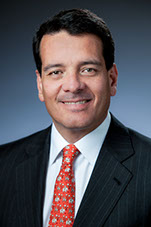
For more than 30 years, Rice University professor Stephen Klineberg has conducted an ongoing sociological study of Houston, BP’s home base in the United States. Over that period, the city has transitioned from a majority Anglo community with a relatively small minority population, to a city that Klineberg now can describe as the most ethnically diverse in the whole country. One in two Houstonians under the age of 18 is Hispanic, and other ethnic groups are increasing rapidly as well, both because of immigration and because of birthrates.
 According to Klineberg, these changes have been mostly a boon to the Houston economy. As Klineberg has put it: “Houston is one of the most vibrant, rapidly growing cities in America, with a tremendous entrepreneurial spirit — the last city to go into the recession, the first to come out, one of the strongest economies in the country, largely because of the tremendous energy, vitality and commitment to hard work of immigrants pouring into this city from Asia, Latin America, Africa and the Caribbean.”
According to Klineberg, these changes have been mostly a boon to the Houston economy. As Klineberg has put it: “Houston is one of the most vibrant, rapidly growing cities in America, with a tremendous entrepreneurial spirit — the last city to go into the recession, the first to come out, one of the strongest economies in the country, largely because of the tremendous energy, vitality and commitment to hard work of immigrants pouring into this city from Asia, Latin America, Africa and the Caribbean.”
The direct correlation between economic vitality and diversity represents a lesson every community should learn and an opportunity every business should seize. This is not lost on my company, BP, which has an absolute, unshakeable commitment to diversity. We believe diversity is good business, whether it is diversity of thought, workforce or supplier network.
That is why BP has set a goal of spending $1 billion per year with minority- and women-owned business enterprises. From our Cherry Point refinery in Washington State to our Cooper River chemicals plant in South Carolina, and from our technology center in the Chicago area to our facilities in Houston and the Gulf of Mexico, BP is a dynamic, multifaceted company with a tremendous need for supplier support.
Meeting that need is an ongoing challenge, but it also provides us with an opportunity to invest in the communities where we do business. BP has been proud to partner with Hispanic-owned firms such as the New Jersey–based Camin Cargo Control, the Illinois–based Valdes Engineering, and a number of Houston-area companies, including the Plaza Group, Petro Amigos Supply, and Taylor and Hill. Indeed, in the past three years alone, we have spent $221 million with dozens of Hispanic business enterprises across the nation. These companies have provided us with expert support in areas ranging from maintenance, manufacturing and additives to drilling, engineering and construction.
By investing in diverse suppliers, which often are headquartered in underserved areas, we provide the capital to help those businesses grow. Their growth, in turn, stimulates the local economy, leading to more jobs, higher standards of living and stronger communities where young people can develop skills and build a career — perhaps even a career with BP.
Supplier diversity is thus an investment in our own company’s future. From our perspective, it is hard to imagine a more virtuous circle. That is why BP’s leadership — from CEO Bob Dudley, to BP America Chairman and President John Mingé, to every other executive I have spoken with — firmly supports our billion-dollar commitment. It also is why BP has created a Supplier Diversity Advisory Council comprised of procurement specialists and business leaders, whose job it is to keep us on target and focused on meeting our commitment.
No other country is as much a microcosm of the world as the United States. Our culture of diversity is one of our greatest strengths, as is our culture of entrepreneurship and upward mobility. By harnessing these cultures to its larger business strategy, BP is becoming a stronger company — and promoting a stronger America.
Felipe Bayon is Sr. Vice President, BP America and Head of Global Deepwater Response.
(l-r) David L. Cohen, Rep. John Lewis, and Javier Palomarez